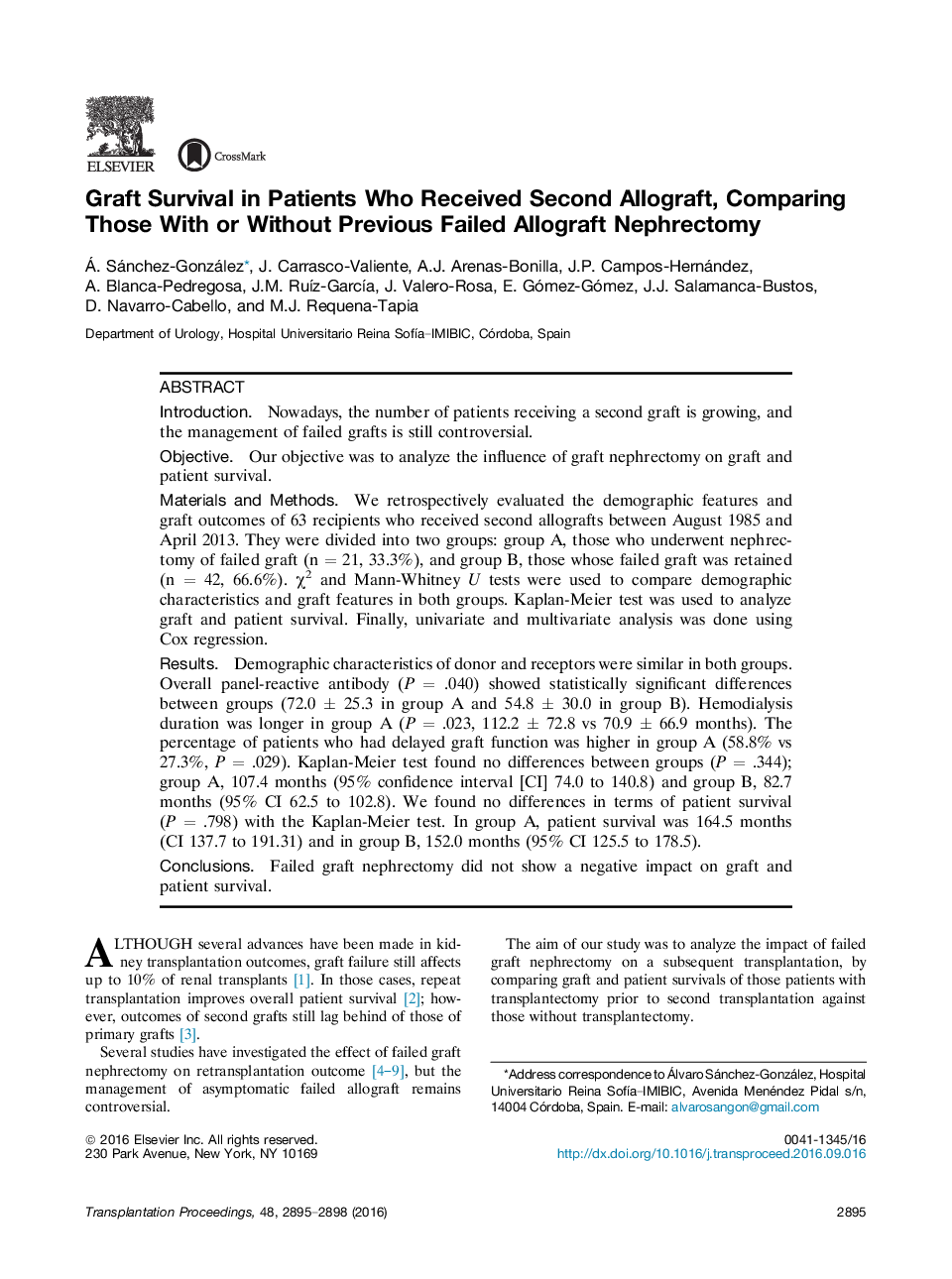| کد مقاله | کد نشریه | سال انتشار | مقاله انگلیسی | نسخه تمام متن |
|---|---|---|---|---|
| 5728986 | 1411674 | 2016 | 4 صفحه PDF | دانلود رایگان |

- Failed graft nephrectomy has no influence on graft or patient survival.
- Failed graft nephrectomy increases PRA levels, with no association with patient or graft survival.
- Failed graft nephrectomy increases the proportion of patients with delayed graft function, with no association with patient or graft survival.
- Failed graft nephrectomy causes patients to require hemodialysis longer, with no association with patient or graft survival.
IntroductionNowadays, the number of patients receiving a second graft is growing, and the management of failed grafts is still controversial.ObjectiveOur objective was to analyze the influence of graft nephrectomy on graft and patient survival.Materials and MethodsWe retrospectively evaluated the demographic features and graft outcomes of 63 recipients who received second allografts between August 1985 and April 2013. They were divided into two groups: group A, those who underwent nephrectomy of failed graft (n = 21, 33.3%), and group B, those whose failed graft was retained (n = 42, 66.6%). Ï2 and Mann-Whitney U tests were used to compare demographic characteristics and graft features in both groups. Kaplan-Meier test was used to analyze graft and patient survival. Finally, univariate and multivariate analysis was done using Cox regression.ResultsDemographic characteristics of donor and receptors were similar in both groups. Overall panel-reactive antibody (P = .040) showed statistically significant differences between groups (72.0 ± 25.3 in group A and 54.8 ± 30.0 in group B). Hemodialysis duration was longer in group A (P = .023, 112.2 ± 72.8 vs 70.9 ± 66.9 months). The percentage of patients who had delayed graft function was higher in group A (58.8% vs 27.3%, P = .029). Kaplan-Meier test found no differences between groups (P = .344); group A, 107.4 months (95% confidence interval [CI] 74.0 to 140.8) and group B, 82.7 months (95% CI 62.5 to 102.8). We found no differences in terms of patient survival (P = .798) with the Kaplan-Meier test. In group A, patient survival was 164.5 months (CI 137.7 to 191.31) and in group B, 152.0 months (95% CI 125.5 to 178.5).ConclusionsFailed graft nephrectomy did not show a negative impact on graft and patient survival.
Journal: Transplantation Proceedings - Volume 48, Issue 9, November 2016, Pages 2895-2898